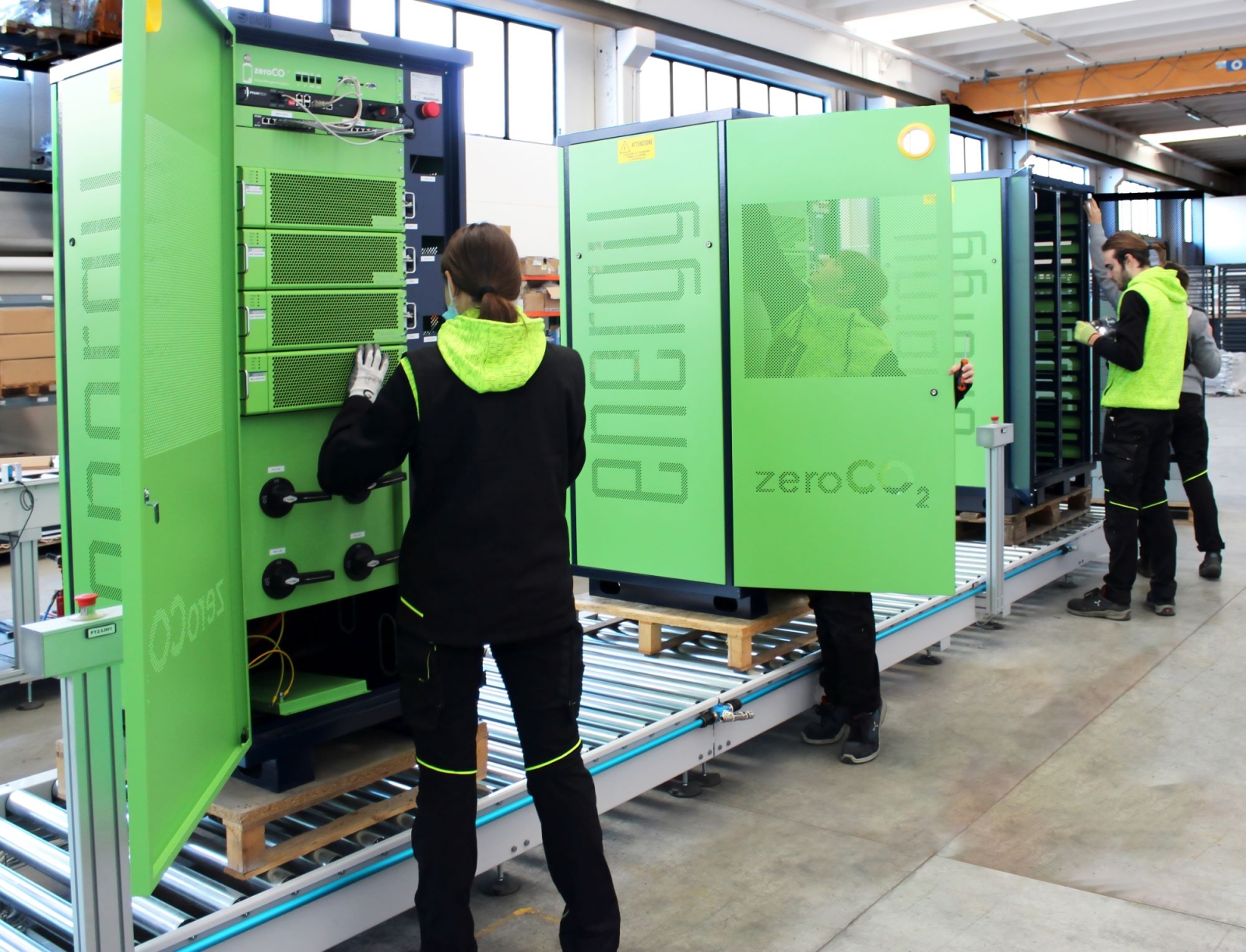Progetto Manifattura, the historic Trentino-based cleantech incubator, has been part of the birth of many companies in the renewable energy sector. However, few of these have achieved the same degree of success as Energy S.p.A., founded by engineer Davide Tinazzi in 2013, which today sets itself as a leader in the renewable energy storage system industry.
Can you give us an overview of what Energy does today?
Energy S.p.A. was founded 11 years ago as an innovative startup for the development and manufacturing of residential storage systems. Today, it is a business with 70 employees that is listed on the Milan Stock Exchange. Over time, it has expanded its scope of operations in the production of storage systems to include the integration of the software component and cloud management of all services, as well as the manufacturing at its own site of both the electronic components and batteries. In complete accordance with the requirements of the Net Zero Industry Act – the EU legislation per which by 2030, 40% of supplies for renewables must be manufactured on European soil – the company has just launched the first lithium-ion battery production line in the gigafactory that it is building at its headquarters in Sant’Angelo di Piove di Sacco (in Veneto, Italy). By 2026, this new hub will be able to manufacture 8 GWh of lithium-ion batteries on Italian soil.
What are the critical issues that Europe must solve in sourcing the raw materials needed for battery production?
In our continent, new pilot trials of sodium-ion technologies are already underway that could work alongside lithium-ion batteries, into which Europe is also expanding. But we should not just focus on materials. It is also vital to manufacture in-house the other components of storage systems: currently, closed storage systems that do not connect to remote servers and keep data management under our control are one of the most common requirements from our clients.
Speaking of the EU Net Zero Industry Act, what are the weaknesses that you, as stakeholders in the sector, currently identify?
The Net Zero Industry Act is a great opportunity for production chains. The problem with it, as is often the case with the EU’s approach, is the excessive bureaucratisation of processes. European high-tech supply chains have to race to reach market targets, also due to the strong competition from Chinese companies, which are much more advanced in terms of product industrialisation. We, as entrepreneurs, are doing all we can to reach the market with modern and competitive production chains: however, an excess of bureaucratic obstacles must be avoided.
The European Union is also working extensively on circular economy procedures for batteries. How significant could they be for the market? Might they constitute a competitive advantage?
From now to 2030, the EU has defined a series of targets to increase the proportions of recycled materials integrated into batteries and accumulators. While, from a technological standpoint, these are achievable targets, the matter becomes more complex when it comes to product uniformity. To manufacture cells that use recycled materials, the starting product must have great stability. At this time, few operators can guarantee this, because so far, most cells have been bought in China without considering the homogeneity of the chemistry offered by different manufacturers. However, if we consider the case of Italy, since we have introduced approximately 70,000 storage systems of the same type – therefore, about 150/180,000 batteries – we can draw on a large number of batteries that have the same type of cell and thus trigger a virtuous process for locally manufacturing recycled cells.
How much is the XL storage model market growing?
Demand is increasing week by week, but sales are not growing at the same pace. Thanks to new updated regulatory frameworks, opportunities are opening up for various operators to deliver services to the network from storage systems even in an aggregated way, with systems distributed across the territory, which are piloted by traders or by the aggregators themselves. From the 1st of January 2025, in all of Europe, these services will be liberalised: there are just a few months left to build our competitiveness and stop the invasion of foreign multiutilities and aggregators.
This article is also available in Italian / Questo articolo è disponibile anche in italiano
Images: Energy SpA
This content is produced thanks to the support of sponsors



